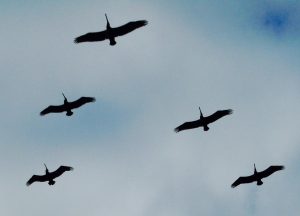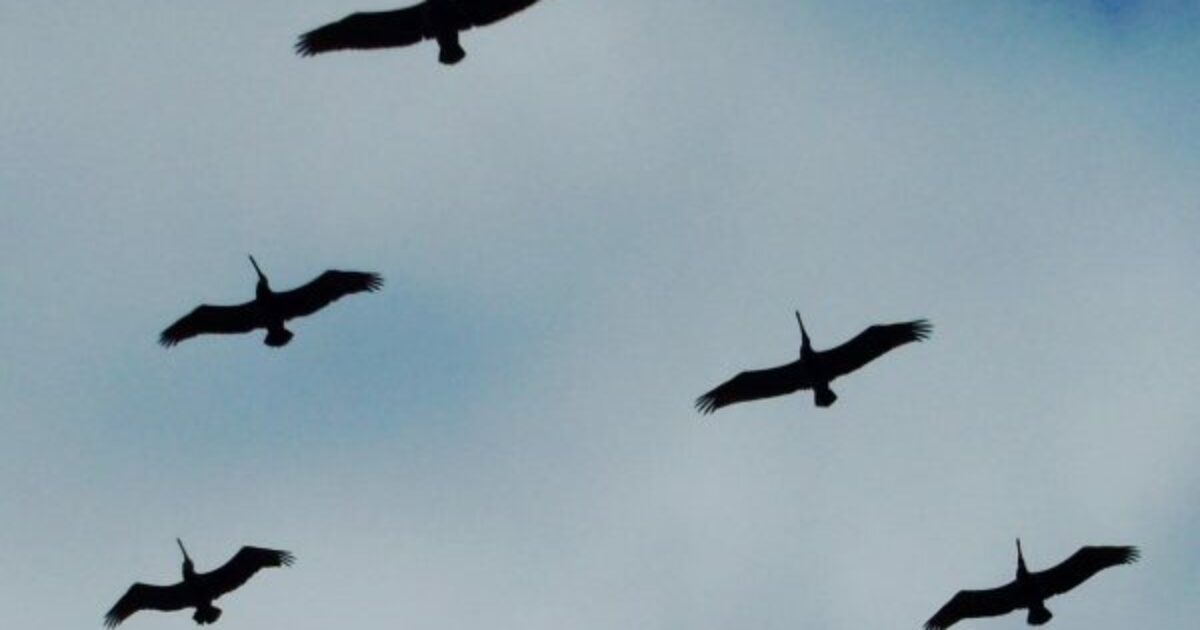Let Us Now Praise Famous Poets
By S M Chen, posted by D Kovacs, Mar 9, 2016
I mount my deep copper 5-speed Schwinn vintage bike that was born in the early 1970s and head down the paved path that snakes its way three miles to the coast. I can inhale deeply without concern under a sky that is the purest blue.
It is not long before I enter the first of three underpasses on the way to my destination. It is dark and cool and I hear little traffic above me.
A short distance beyond the exit, the path steepens considerably and I have to stand up in order to pedal, even in first gear. The asphalt upon which my tires roll is cracked and uneven from weathering. I can barely make out the distant limbus between sea and sky as I gaze out from under my safety helmet.
It was on this path a couple years ago that I encountered someone traveling the opposite direction who seemed vaguely familiar. She called out a greeting, but, by the time I turned to respond, she was far away.
Later the same day my daughter told me who it was, and that the biker, a friend, had expressed concern I was not wearing a safety helmet (only a baseball cap).
Thereupon my daughter and I made an agreement. I told her I would wear a safety helmet when biking if she would agree not to text while driving.
Just off the path sits a restaurant at which I have dined. A friend from college days, whose birthday is one month before mine, likes to eat there. At least once a year we sit at a table closest to the sea and peer into the distance, hoping to make out the coastline. It is not a bad way to end a day, particularly if we have walked the beach beforehand, the better to whet appetite.
Just above the restaurant is a daycare center, where I’ve heard on occasion the voices of our nation’s potential future leaders shrieking with delight.
Upon reaching the path’s acme, I stop briefly to quaff from the water bottle that sits in a holder on the diagonal bar of the bike’s frame and wonder about the ingenuity behind the bottle, which will yield up contents upon being squeezed, but otherwise does not. I feel lactic acid drain from weary leg muscles as I briefly scan the horizon for a glimpse of the sea.
It is near this crest that I once encountered a rattlesnake that was basking transversely across the path in the sun. I came upon it so rapidly I didn’t have time to stop. Instead, I quickly guided the bike around the reptile, hoping I had gauged proper clearance, for I do not wear high boots, only sneakers.
I shift into fifth gear as I descend. My velocity will not be exceeded elsewhere on this ride. I understand what motivates those who race on surfaces or in air. My risk is commensurately lower than theirs; perhaps my exhilaration also.
The path wends up and down, right and left. Soon the path ascends, and I downshift in order to negotiate a hill, steep but shorter than the first, which leads to an eventual descent that passes under a second street.
By the path, near and likely distant, live a variety of fauna, some of which I’ve encountered in past rides. Sometimes they scurry across the path.
Rabbits, which come out in numbers in early evening to feed. Birds, including roadrunner and quail, and lizards/geckos, as well as ground squirrels and snakes, both rattlesnakes and nonvenomous.
In certain places, the ground resembles brown sponge, it is pockmarked by so many small animal burrows. Depending on time of day, frogs croak from a nearby pond. Crickets, too. Sometimes their voices sound in harmony, at others more in cacophony. The thick brush adjacent to the paved path camouflages well, but I’ve seen a bold/rash bobcat out in the open.
There may be others on the trail – walkers, often with dogs; bikers, most serious; some in groups, some, like me, alone.
Mounted on my handlebars is a small bell my daughter gave me one day when she and family came to ride (where they live is more hilly). Without a word, my son-in-law procured a wrench from my tool chest, took the bell off her bike, which she rarely uses, and installed it on my bike. It was a sweet gesture.
I ring this tocsin on occasion as I approach those on foot. Those on bike are usually fleeter. Once, one overtaking me complimented my bike, how vintage it was, yet how serviceable. This gladdened me; I tend to keep things a long time and it is nice to receive affirmation that perhaps that’s not all bad. Plus most days I feel a bit vintage myself.
The path winds its way past homes, a renowned golf course. In certain parts, it is nothing if not scenic. In some places it verges on the spectacular.
Then, past the second underpass, there it is, in unalloyed splendor: the ocean. Usually bathed in sunlight, its tides respond with predictable regularity to the pull of the now invisible moon. No matter how many times I view, it never ceases to move in ways that defy facile explication; I am merely grateful for the opportunity to savor. I recall Anne Morrow Lindbergh’s aptly titled Gift from the Sea.
Upon exiting the third underpass, I take a hard left as the path winds above the beach. I see and hear seabirds almost simultaneously. I look up and see a hawk, falcon, or similar raptor (at distance it is hard to tell), and relate to the exhilaration Gerard Manley Hopkins felt when he wrote, in “The Windhover”:
“I caught this morning morning’s minion, king-
dom of daylight’s dauphin, dapple-dawn-drawn Falcon, in his riding
Of the rolling level underneath him steady air, and striding
High there, how he rung upon the rein of a wimping wing
In his ecstasy! then off, off forth on swing,
As a skate’s heel sweeps smooth on a bow-bend: the hurl and gliding
Rebuffed the big wind. My heart in hiding
Stirred for a bird, – the achieve of; the mastery of the thing!”
Pelicans, so awkward on land, so graceful in flight, pass in formation, their destination as unknown to me as the place from whence they came.

The closing words of William Cullen Bryant’s “To A Waterfowl” come to mind:
“He who, from zone to zone
Guides through the boundless sky thy certain flight
In the long way that I must tread alone
Will lead my steps aright.”
I do not walk the strand today, although I have walked it many times.
As I see in the sand the footprints of those who have passed before, I’m reminded by Henry Wadsworth Longfellow (in “A Psalm of Life”):
“Lives of great men all remind us
We can make our lives sublime,
And, departing, leave behind us
Footprints on the sands of time.”
At other times, in proximity to this gift of Nature, I relate to John Masefield, who wrote, in “Sea Fever”:
“I must go down to the seas again, to the lonely sea and the sky…
I must go down to the seas again, for the call of the running tide
Is a wild call and a clear call that may not be denied;
And all I ask is a windy day with the white clouds flying,
And the flung spray and blown spume, and the seagulls crying.”
As I gaze over the vastness of the ocean, at which time I feel so small, so insignificant, lines from Lord Byron’s “The Ocean” come to mind:
“Roll on, thou deep and dark blue Ocean, roll!
Ten thousand fleets sweep over thee in vain;
Man marks the earth with ruin; his control
Stops with the shore; upon the watery plain
The wrecks are all thy deed, nor doth remain
A shadow of man’s ravage, save his own,
When, for a moment, like a drop of rain,
He sinks into thy depths with bubbling groan,
Without a grave, unknelled, uncoffined, and unknown.”
I return home the same way I have come.
It occurs to me that my bike ride could be a microcosm of, a metaphor for, life – the ups and downs, the zigs and zags, the potential distractions by the path, times I thought I would have to dismount, the fellow travelers, the final destination making it all worth it.
T S Eliot closed his 1925 poem, “The Hollow Men,” with these lines:
“This is the way the world ends
This is the way the world ends
This is the way the world ends
Not with a bang but a whimper.”
That need not be the case.
—–
In the early hours, at the transition between darkness and light, more lines from Bryant, like quiet creatures of the night, emerge from the recesses of the mind: the closing of “Thanatopsis”:
“So live, that when thy summons comes to join
The innumerable caravan, which moves
To that mysterious realm, where each shall take
His chamber in the silent halls of death,
Thou go not, like the quarry-slave at night,
Scourged to his dungeon, but, sustained and soothed
By an unfaltering trust, approach thy grave
Like one who wraps the drapery of his couch
About him, and lies down to pleasant dreams.”
From the shadows emerges a figure. Tall and noble, Adam holds a quince, symbol of the Fall. As if on stage, he passes silently from view.
He is followed by a succession of others. Men, women, children. Of different age, different size. Wearing different garb. Of different eras, from the beginning of time to its terminus. Some possess a certain equanimity.
Not all are destined for pleasant dreams.
There is Goliath, whom I recognize by his size. Unlike most others, he wears a scowl on his face and bears his large shield with pride.
One has a sad countenance and a rope around his neck. Silver coins dangle behind him. It is Judas. He does not look my way.
This goes on for a while; how long I cannot say. Without the assist of a clock, I am not good at gauging time’s passage.
By now the slender fingers of dawn have gently pried open the crevices of my room. Dawn has slipped past its portal and illuminated it.
It is time to rise. To rise and contemplate the gift and wonder of another day.




